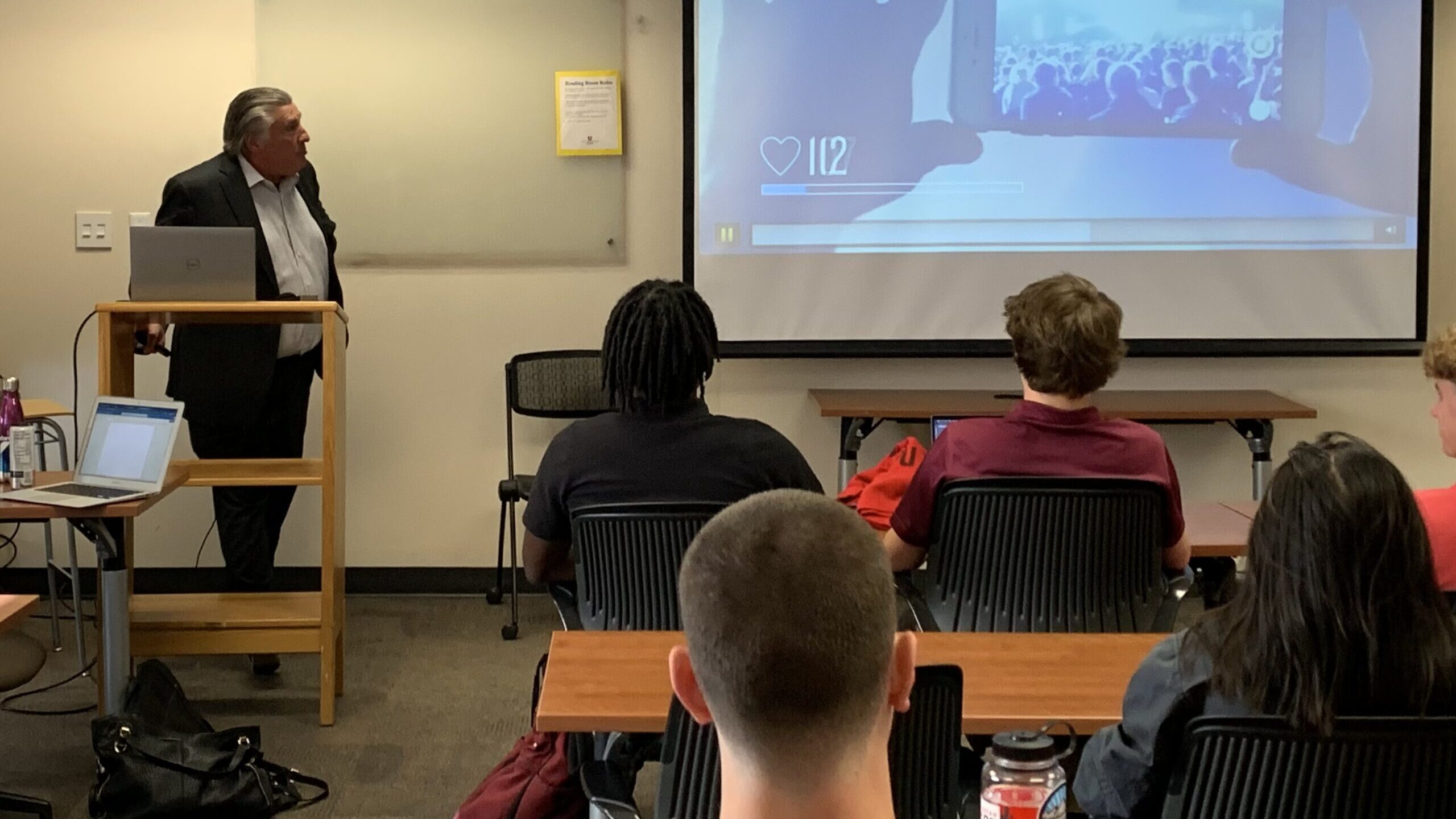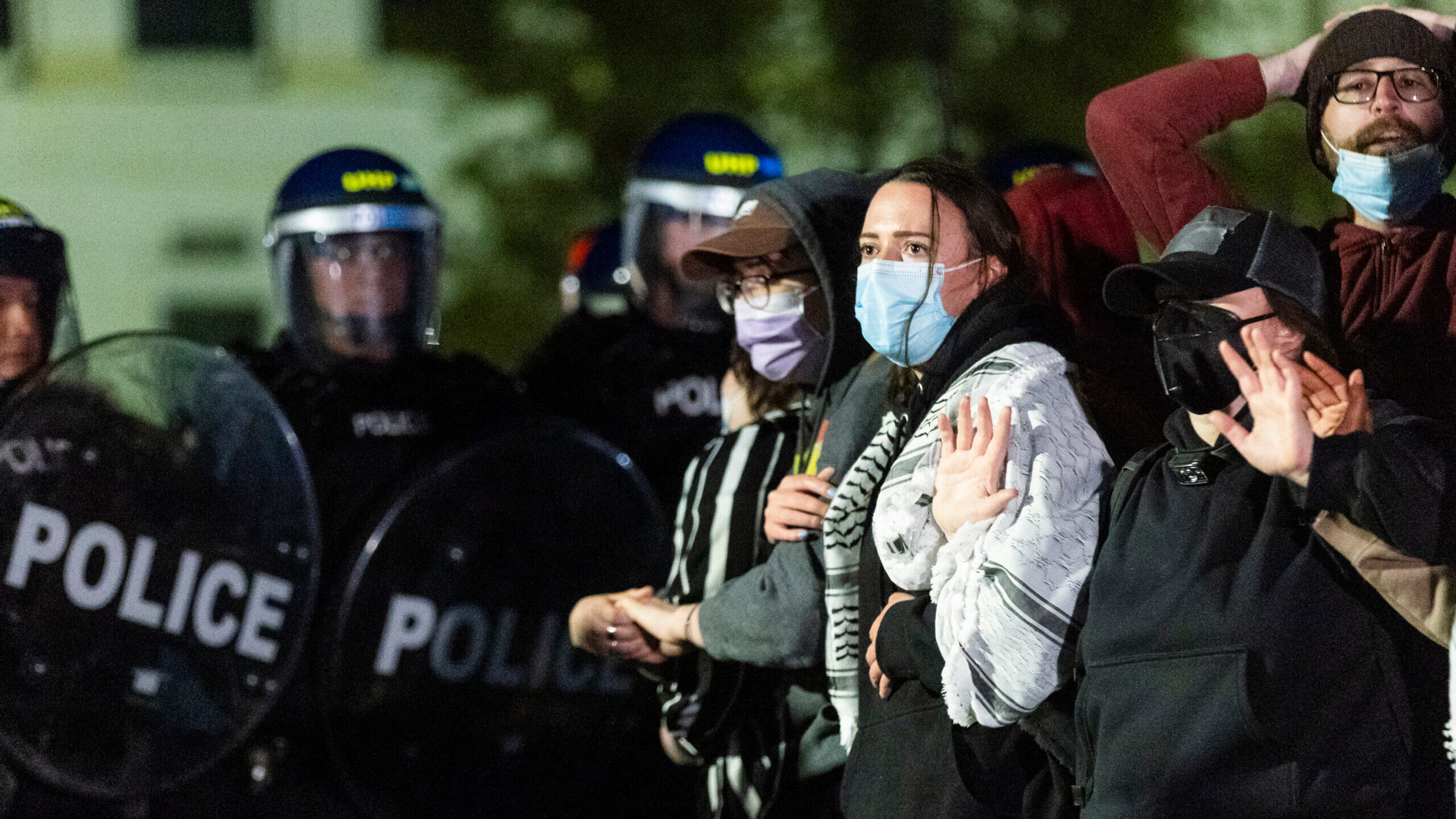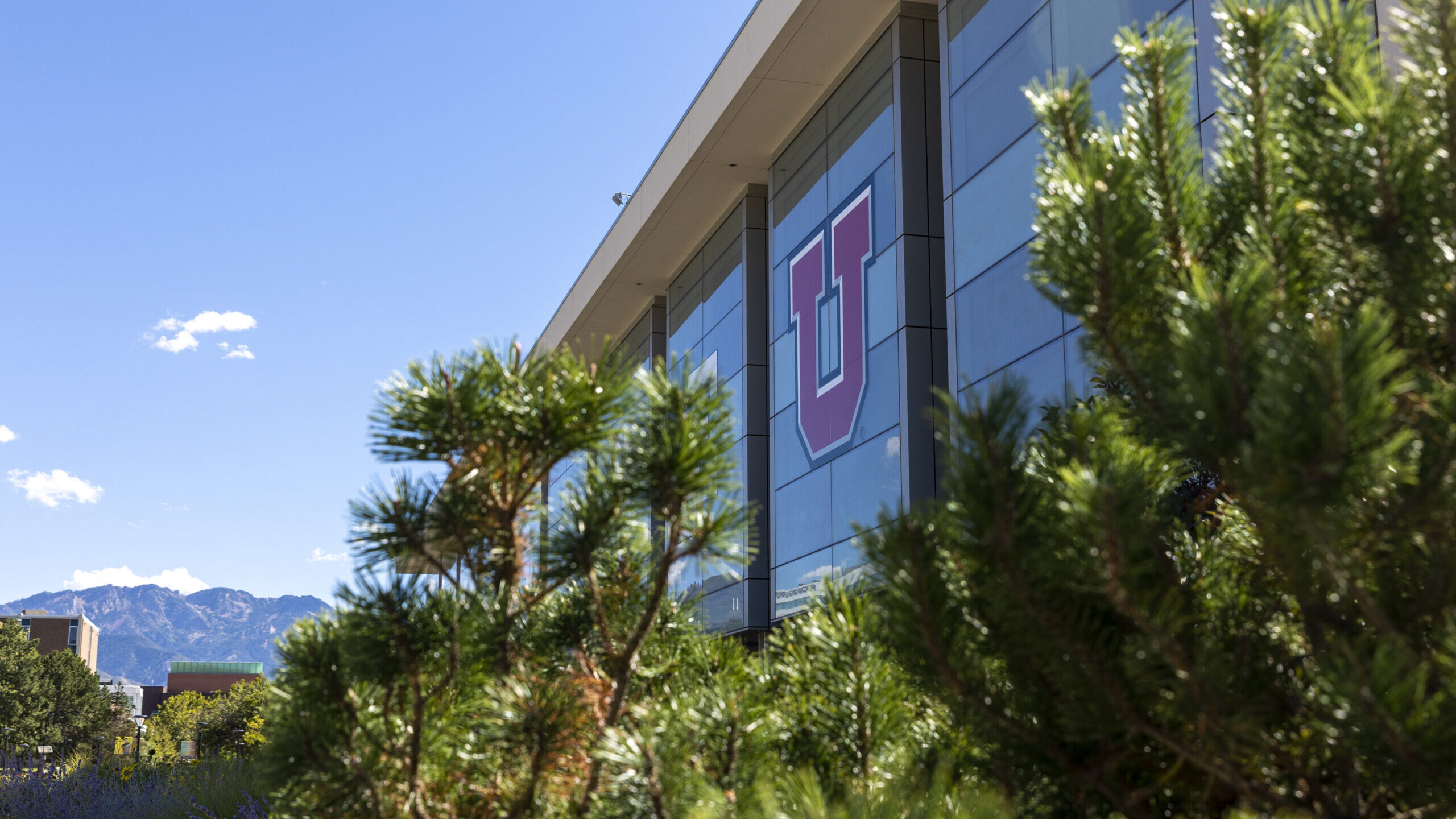Dickson: A master class on media and business at the U
Oct 24, 2023, 3:00 PM

David Chipman speaks to University of Utah students on Oct. 24, 2023 in Salt Lake City. (Amanda Dickson/KSL NewsRadio)
(Amanda Dickson/KSL NewsRadio)
This is an editorial piece. An editorial, like a news article, is based on fact but also shares opinions. The opinions expressed here are solely those of the author and are not associated with our newsroom.
“Be curious, not judgmental,” said David Chipman to my Media and Society students at the University of Utah this morning.
Chipman is a guru of the media business, who I have known and admired for more than 30 years.
Then he played a clip for the class from the show Ted Lasso.
Chipman encouraged the students to be curious about their own generation, Gen Z, and other generations. Which generation has the most money? The most people? Which generation spends the most money and on what?
“Millennials are the largest percentage of the population at 21%,” Chipman explained, “but Boomers control 70% of the wealth.”
He offered an example.
“The average American will buy 13 cars in their lifetime,” he said. “Seven of them will be after age 50. So, why don’t car companies market more to people over 50?”
The economy is strong
“Utah is at the very center of economic growth in the country,” Chipman told the students. “After the pandemic, Utah was one of only five states where the median income grew.”
I noticed some questioning expressions in the classroom.
“Sixty-six percent of small business owners say their business is in good health,” Chipman continued. “Seventy-one percent say they expect revenue to increase next year.”
A student raised his hand.
“Then why does the media make the economy sound like it’s tanking?” he asked.
The answer is money
“The answer to all your ‘why’ questions is money,” Chipman replied.
Why do advertisers target people between the ages of 18 and 49?
“Because they make up the largest segment of the shopping public.”
Why do so many news outlets focus on doom and gloom — whether it’s the economy or crime or politics?
“Because that’s what gets people coming back, spending longer, clicking through,” he explained.
We are more interested in what threatens us than what pleases us. This phenomenon is sometimes referred to as the “negativity bias” of news. Studies have been done that show headlines with negative words like crisis, horror, disaster, and terror, get more clicks than those without.
Digital fraud
“Less than 40% of internet traffic is human,” Chipman explained to the class.
“There is over $100 billion in digital fraud every year,” he continued. “That means almost half of every ad dollar spent online is stolen by click farms and other schemes.”
So why do advertisers keep buying digital ads? Aside from the fact that at least 60 cents of every dollar is not stolen.
“It is hard to get someone to believe something when their livelihood depends on them believing the opposite,” Chipman said. He predicts digital fraud will continue to grow unchecked.
“Stay curious,” he encouraged before he ended the session. I am quite sure that was the most impactful hour of class this year.













